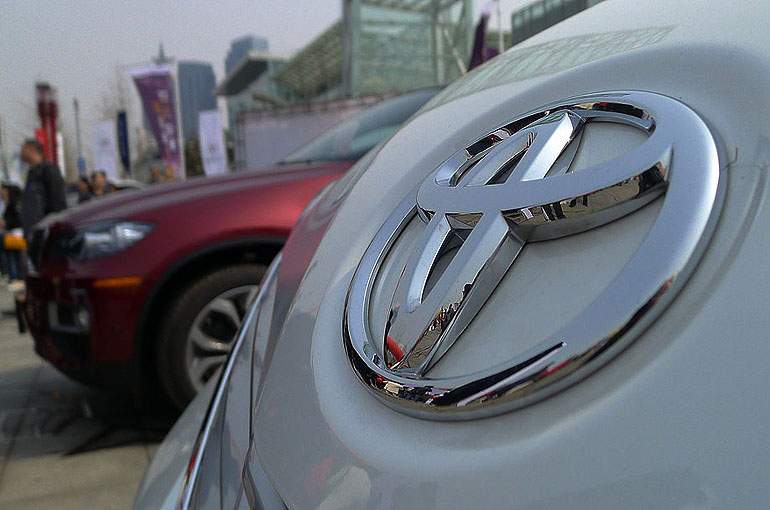 Toyota to Use BYD’s Super Hybrid Tech in China, Report Says
Toyota to Use BYD’s Super Hybrid Tech in China, Report Says(Yicai) May 10 -- The Chinese joint ventures of Japanese automotive giant Toyota Motor will reportedly use the super hybrid technology of Chinese new energy vehicle maker BYD.
Toyota’s JVs in China plans to launch plug-in hybrid electric vehicles in the next two to three years, which will no longer use Toyota’s original hybrid technology but may adopt BYD’s DM-i Super Hybrid, Caijing Car reported yesterday.
BYD launched its Dual Mode hybrid technology platform in 2008 and upgraded it several times over the years to the more energy consumption-orientated DM-i Super Hybrid. The company said in March that it will release the fifth generation DM-i Super Hybrid this month, with fuel consumption reduced to 2.9 liters per hundred kilometers and a full-tank-full-charge range of 2,000 kilometers.
DM-i Super Hybrid has ultra-low fuel consumption, extreme ride comfort and quietness, high-power performance, maximized efficiency, good fuel economy, and regenerative braking that provides energy savings and increased range, according to BYD.
“The new models will use BYD’s DM-i Super Hybrid, but Toyota will make changes to personalize the driving experience,” a Toyota insider told Caijing.
One of the main reasons for Toyota to use DM-i Super Hybrid is its low costs and relatively high maturity, Caijing reported, citing a source familiar with the matter.
It is not yet sure whether Toyota’s new plug-in hybrid EV models will hit the market as planned or not. But another source told Caijing that the company will unveil more details about its strategy for plug-in hybrid EVs at an electrification technology release conference in Japan at the end of this month.
Toyota will thoroughly develop plug-in hybrid EVs, as well as hybrid EVs, battery EVs, and fuel cell EVs, and provide different solutions from region to region, based on their energy conditions, Hiroki Nakajima, board member, executive director, vice president, and chief technology officer of Toyota, said at the Beijing International Automotive Exhibition ended May 4.
Toyota launched its first hybrid EV, the Prius, as early as 1997. But as battery EVs gained the upper hand given their advanced technologies, Toyota switched in that direction.
In 2019, Toyota and BYD penned a deal to jointly develop battery EVs and power batteries. They formed a JV in 2020, which developed its first battery EV bZ3. Sales of the bZ3 totaled 1,674 units in March and of 4,095 units in the first quarter.
Toyota will have 30 battery EV models by 2030 and sell 3.5 million NEVs a year by then, accounting for 75 percent of its total sales, the carmaker said in 2021.
Editor: Futura Costaglione